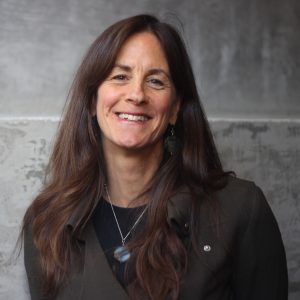How can a local street market in China impact the Dow Jones?
How can statistics from Italy shut down a barber shop in a small town in the US?
How can millions of people lose their jobs over something they can’t even see?
Because we’re all part of a global community.
Because, we’re all human beings subject to the laws of nature.
Because we’re all part of the same interconnected interdependent systems.
If you didn’t understand it before, now you get Systems Thinking!
Systems Thinking is a core course in our MA in Sustainable Design program because — as we all now know — everything is part of a system. If you don’t take systems into account, any solution to a problem will likely be incomplete, inadequate, temporary or, worse yet, result in a new set of problems.
Interestingly, Systems Thinking often reveals that the most effective (and innovative) solutions may not appear to be directly related to the problem. Instead of focusing on ways to sterilize mass transit vehicles, it might make more sense to create more bike lanes. Instead of focusing on getting everyone back to work as soon as possible, it might make more sense to rethink how, where, and even why we work. Instead of striving to get back to ‘normal’, it might make more sense to reimagine a new normal that is fundamentally healthier and more sustainable.
Systems Thinking can also reveal the role of human behaviors, perceptions, and assumptions in both problems and solutions. A design challenge may be most effectively addressed with a paradigm shift, rather than a product, process, or policy.
The pandemic has caused disruption, and even tragedy, for many; however, there have been hints of bright spots. Have you enjoy a bit of extra down time? Have you been skipping a daily commute? Have you plant or expand your garden? Have you connected with others, even your co-workers, with more compassion? Have you spent more time in nature?
What has this time revealed to you? How might this time shift your personal paradigm?
As you take in the masses of information on the pandemic, pause and consider how it’s all connected, how we’re all connected. And then, perhaps while going for a walk instead of a commute, imagine the new systems that you would like to engage with.
If you’d like some tools for Systems Thinking, you’re welcome to explore our free mini-courses. If you’d like to dive deeper, explore our fully online MA in Sustainable Design program.
(Note: Given the constraints and challenges that we’re all facing, we have relaxed our deadlines and are still accepting applications for Fall 2020.)

